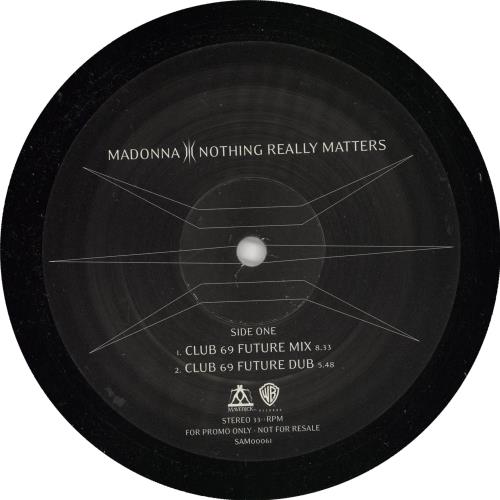|
Cross Game (song)
"Cross Game" is the 14th maxi single by Alice Nine. It was released on December 10, 2008 in two versions: the first version includes a DVD with a music video and a random photocard of one of the band members, and the second version features only the CD while including a bonus track. The title track was the second ending theme for the TV Tokyo anime series '' Yu-Gi-Oh! 5D's''. Track listing Version 1 (CD and DVD) #"Cross Game" #" tmosphere *"Cross Game" music video Version 2 (CD only) #"Cross Game" #" tmosphere #"Mugen -electric eden-" ( -electric eden-) References External links King Records' Official WebsiteOfficial myspace {{DEFAULTSORT:Cross Game (Song) 2008 singles Yu-Gi-Oh! Alice Nine songs 2008 songs King Records (Japan) singles Song articles with missing songwriters ... [...More Info...] [...Related Items...] OR: [Wikipedia] [Google] [Baidu] |
Alice Nine
is a Japanese visual kei rock band formed in Tokyo in 2004. They were a part of PS Company until 2014. The band had King Records as its record label until 2010, when they joined Tokuma Japan. Then, in 2013, the band joined Universal Music Group's Nayutawave Records. They shortened their name to A9 in 2015, but switched back to Alice Nine in 2019. Alice Nine has released six full-length records, some of which were distributed in Europe by CLJ Records, along with several EPs, singles, and DVDs. History 2004–2006: Conception and early work In August 2004, Alice Nine formed after the disbandment of the band Givuss, and the band's vocalist, Shou, and guitarist Tora continued on to search for members to form a new band. Saga, the bassist for the band Delta Ark, and Nao, drummer for the bands Fatima and RusH, were also seeking bandmates as well, and the four members eventually joined. Hiroto was the last member to join after Shou, Tora, Saga, and Nao spotted him at a performan ... [...More Info...] [...Related Items...] OR: [Wikipedia] [Google] [Baidu] |
Alternative Rock
Alternative rock (also known as alternative music, alt-rock or simply alternative) is a category of rock music that evolved from the independent music underground of the 1970s. Alternative rock acts achieved mainstream success in the 1990s with the likes of the grunge, shoegaze, and Britpop subgenres in the United States and United Kingdom, respectively. During this period, many record labels were looking for "alternatives", as many corporate rock, hard rock, and glam metal acts from the 1980s were beginning to grow stale throughout the music industry. The emergence of Generation X as a cultural force in the 1990s also contributed greatly to the rise of alternative rock. "Alternative" refers to the genre's distinction from mainstream or commercial rock or pop. The term's original meaning was broader, referring to musicians influenced by the musical style or independent, DIY ethos of late-1970s punk rock.di Perna, Alan. "Brave Noise—The History of Alternative Rock Gu ... [...More Info...] [...Related Items...] OR: [Wikipedia] [Google] [Baidu] |
Hard Rock
Hard rock or heavy rock is a loosely defined subgenre of rock music typified by aggressive vocals and distorted electric guitars. Hard rock began in the mid-1960s with the garage, psychedelic and blues rock movements. Some of the earliest hard rock music was produced by the Kinks, the Who, The Beatles, the Rolling Stones, Cream, Vanilla Fudge, and the Jimi Hendrix Experience. In the late 1960s, bands such as Blue Cheer, the Jeff Beck Group, Iron Butterfly, Led Zeppelin, Golden Earring, Steppenwolf and Deep Purple also produced hard rock. The genre developed into a major form of popular music in the 1970s, with the Who, Led Zeppelin and Deep Purple being joined by Queen, AC/DC, Aerosmith, Kiss, and Van Halen. During the 1980s, some hard rock bands moved away from their hard rock roots and more towards pop rock.V. Bogdanov, C. Woodstra and S. T. Erlewine, ''All Music Guide to Rock: the Definitive Guide to Rock, Pop, and Soul'' (Milwaukee, WI: Backbeat Books, ... [...More Info...] [...Related Items...] OR: [Wikipedia] [Google] [Baidu] |
Free-Will
is a Japanese independent record label founded in 1986 by Color vocalist Hiroshi "Dynamite Tommy" Tomioka, with branches predominantly in Japan and the United States, as well as previously in Europe. It also continues to co-manage many of its artists after they have signed recording contracts with a major record label. Free-Will along with Extasy Records are credited with helping to spread the visual kei movement. Free-Will also produced the 2001 anime adaptation of the long running manga series '' Grappler Baki''. Sub-divisions The company operates several sub-divisions, some of them for a single band or purpose only. For example, ''Firewall Div.'' solely handles material which is released in collaboration with Sony Music. Under Sony Music * ''Back Coat'' – 12012 * ''Firewall Div.'' – Dir en grey, Merry * ''Lizard'' – Kagerou Under King Records * ''PS Company'' – Kra ** ''Indie PSC'' – Born * ''S'Cube'' – Baroque, Eile de Mu, Puppet Mammy, Ruvie, Tokyo Mich ... [...More Info...] [...Related Items...] OR: [Wikipedia] [Google] [Baidu] |
King Records (Japan)
, commonly known as King Records, is a Japanese record company founded in January 1931 as a division of the Japanese publisher Kodansha. It initially began operating as an independent entity in the 1950s. It later became part of the Otowa Group. Today, King Records is one of Japan's largest record companies which is not owned by a multinational entity. The label's headquarters are in Bunkyo, Tokyo. The label's name is actually based from the now-defunct '' Kingu'' magazine published by Kodansha from 1924 to 1957. Sub-labels Its Starchild label, was managed by animation producer Toshimichi Ōtsuki, specialised in anime music and film. King Records also distributes the Up-Front Works–owned and –operated labels Piccolo Town and Rice Music, and also released video games for the PC-88, Famicom, and MSX2 computers. On February 1, 2016, King Records restructured Starchild and renamed it King Amusement Creative. Paddle Wheel Records is a division of King Record Co. You! Be ... [...More Info...] [...Related Items...] OR: [Wikipedia] [Google] [Baidu] |
Rainbows (Alice Nine Song)
"Rainbows" is the 13th maxi single by Alice Nine. It was released on August 6, 2008 in three different versions. Each version contains the title track and a B-side, which may include a booklet, a music video, or another bonus track, respectively within the three versions. The single marks a significant change in the band's overall dress style which no longer resembles their original Visual Kei look. In Japan, the single went straight to #3 on the Oricon daily charts, selling over 3,500 copies on its first day and marking their highest position on a mainstream Japanese music chart to date. On the Oricon weekly charts, it ranked at #6, having sold a total of 15,921 copies during its first week. Development history ''RAINBOWS'' The title track was conceptualized by bassist Saga during a period in which the band members were creating songs without an overall motif. An early version of "Rainbows" was chosen out of a total of 17 songs from this period. Saga mentions in an intervie ... [...More Info...] [...Related Items...] OR: [Wikipedia] [Google] [Baidu] |
Maxi Single
A maxi single or maxi-single (sometimes abbreviated to MCD or CDM) is a music single release with more than the usual two tracks of an A-side song and a B-side song. The first maxi singles Mungo Jerry's first single, " In the Summertime" was the first maxi single in the world. The term came into wide use in the 1970s, where it usually referred to 7-inch vinyl singles featuring one track on the A-side and two on the B-side. The 1975 reissue of David Bowie's " Space Oddity", where the featured song is coupled with " Changes" and " Velvet Goldmine", is a typical example. By the mid-1970s, it was used to refer to 12" vinyl singles with three or four tracks (or an extended or remixed version of the lead single/song) on the A-side, with an additional two or three tracks on the B-side; the B-side was initially used by DJs. Later, in the 1980s, a typical practice was to release a two-song single on 7" vinyl and cassette, and a maxi-single on 12" vinyl. These first 12" maxi-singles w ... [...More Info...] [...Related Items...] OR: [Wikipedia] [Google] [Baidu] |
TV Tokyo
JOTX-DTV (channel 7), branded as and known colloquially as , is a television station headquartered in the Sumitomo Fudosan Roppongi Grand Tower in Roppongi, Minato, Tokyo, Japan, owned and operated by the subsidiary of listed certified broadcasting holding company itself a subsidiary of Nikkei, Inc., serving as the flagship station of the TX Network.." TV Tokyo. Retrieved on June 21, 2010. It is one of the major Tokyo television stations, particularly specialising in anime. History TV Tokyo was established by the Japan Science Foundation in 1951 and started broadcasting, as on April 12, 1964. It took its name from its VHF frequency channel 12. It almost went bankrupt in 1968; on 1 July that year, a limited liability company, Tokyo Channel 12 Production was established with the help of the ''Nikkei'' and Mainichi Broadcasting System. In 1969 the ''Nikkei'' and MBS signed a memorandum of understanding which stipulates that Tokyo Channel 12 should share programs w ... [...More Info...] [...Related Items...] OR: [Wikipedia] [Google] [Baidu] |
Yu-Gi-Oh! 5D's
is the second main spin-off of the ''Yu-Gi-Oh!'' franchise, succeeding ''Yu-Gi-Oh! GX'', in celebration of the 40th anniversary of Weekly Shonen Jump and the 15th anniversary of V Jump. The series aired in Japan from April 2, 2008 to March 30, 2011. The story focuses around characters playing a card game called Duel Monsters. This series introduces Synchro Monsters to the '' Yu-Gi-Oh! Trading Card Game''. A new method of dueling exists where motorcycle-like vehicles called D-Wheels (Duel Runners in the English version) are used, and the duelists engage in games called Riding Duels (Turbo Duels in the English version). The show is set in the distant future, where the upper class population live in Neo Domino City (New Domino City in the English version) and the lower class in a remote island where Domino's sewage is transported, Satellite. Yusei Fudo, the 18-year-old protagonist, lives in Satellite and makes it his objective to reach his rival Jack Atlas, who lives in Neo ... [...More Info...] [...Related Items...] OR: [Wikipedia] [Google] [Baidu] |
2008 Singles
8 (eight) is the natural number following 7 and preceding 9. In mathematics 8 is: * a composite number, its proper divisors being , , and . It is twice 4 or four times 2. * a power of two, being 2 (two cubed), and is the first number of the form , being an integer greater than 1. * the first number which is neither prime nor semiprime. * the base of the octal number system, which is mostly used with computers. In octal, one digit represents three bits. In modern computers, a byte is a grouping of eight bits, also called an octet. * a Fibonacci number, being plus . The next Fibonacci number is . 8 is the only positive Fibonacci number, aside from 1, that is a perfect cube. * the only nonzero perfect power that is one less than another perfect power, by Mihăilescu's Theorem. * the order of the smallest non-abelian group all of whose subgroups are normal. * the dimension of the octonions and is the highest possible dimension of a normed division algebra. * the first nu ... [...More Info...] [...Related Items...] OR: [Wikipedia] [Google] [Baidu] |
Yu-Gi-Oh!
is a Japanese manga series written and illustrated by Kazuki Takahashi. It was serialized in Shueisha's ''Weekly Shōnen Jump'' magazine between September 1996 and March 2004. The plot follows the story of a boy named Yugi Mutou, who solves the ancient Millennium Puzzle. Yugi awakens a gambling alter-ego or spirit within his body that solves his conflicts using various games. The manga series has spawned a media franchise that includes multiple spin-off manga and anime series, a trading card game, and numerous video games. Most of these incarnations involve the fictional trading card game known as ''Duel Monsters'', where each player uses cards to "duel" each other in a mock battle of fantasy "monsters", forming the basis for the real life '' Yu-Gi-Oh! Trading Card Game'' tie in. The manga was adapted into two anime series; the first anime adaptation was produced by Toei Animation, which aired from April to October 1998, while the second, produced by NAS and ani ... [...More Info...] [...Related Items...] OR: [Wikipedia] [Google] [Baidu] |
Alice Nine Songs
Alice may refer to: * Alice (name), most often a feminine given name, but also used as a surname Literature * Alice (''Alice's Adventures in Wonderland''), a character in books by Lewis Carroll * ''Alice'' series, children's and teen books by Phyllis Reynolds Naylor * ''Alice'' (Hermann book), a 2009 short story collection by Judith Hermann Computers * Alice (computer chip), a graphics engine chip in the Amiga computer in 1992 * Alice (programming language), a functional programming language designed by the Programming Systems Lab at Saarland University * Alice (software), an object-oriented programming language and IDE developed at Carnegie Mellon * Alice mobile robot * Artificial Linguistic Internet Computer Entity, an open-source chatterbot * Matra Alice, a home micro-computer marketed in France * Alice, a brand name used by Telecom Italia for internet and telephone services Video games * '' Alice: An Interactive Museum'', a 1991 adventure game * ''American McGee's Alice' ... [...More Info...] [...Related Items...] OR: [Wikipedia] [Google] [Baidu] |






